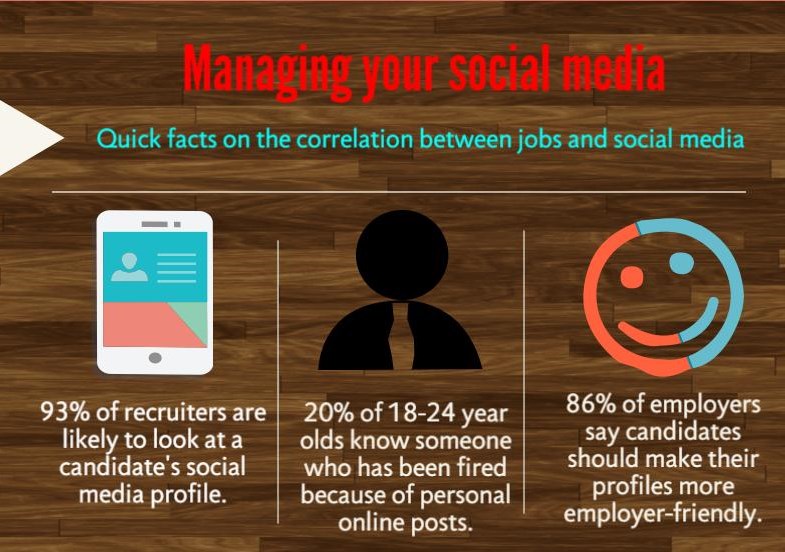University is a time to develop, enhance one’s mind, and to improve oneself. Partly for academic enrichment and partly to gain the skills necessary to join the workforce.
York graduate Jennifer Harrison and professor Marie-Hélène Budworth of York’s School of Human Resource Management have recently undertaken a study to systematically look at the hiring effects for people based on the internet content related to them.
According to their study in the Career Development International journal, potential employers do indeed form an opinion on the prospective employee based on their social and professional digital properties.
The study proves that Twitter, LinkedIn, and Facebook can be examined by employers, and the online profiles have an effect on the applicant’s hiring prospects. In fact, even salary prospects can be influenced by online presences.
“People often overlook their online social profiles when job hunting, but potential employers don’t,” Budworth told York media.
“What they see across a job seeker’s online presence may result in the job seeker being crossed off the list of people to interview.”
Job seekers may not be aware of how their digital impressions influence employment-related outcomes, said Budworth. The study titled “Unintended Consequences of a Digital Presence: Employment-related Implications for Job Seekers,” found that actively managing one’s digital presence carries benefits.
Job hunters who manage their digital image were looked on more favourably by potential employers than those who did not.
This is especially true given the past tumultuous week of the current federal elections, where all three major parties saw past distasteful social media content come to light from both candidates and political operatives.
As part of a recurring string of stories of candidates being dropped and operatives disciplined over the offensive content uploaded to social media, a Conservative candidate has been dropped over a collection of videos uploaded to YouTube featuring himself performing prank phone calls.
A Liberal candidate was dropped from her party’s slate for writing on Facebook that marijuana reduces family violence, and NDP leader Thomas Mulcair’s director of communications apologized for expressing on social media that the Canadian media ought to “stop calling the misogynist, homophobic, child-molesting Catholic church a moral authority.”
It’s not uncommon to be conscious of one’s social media presence, especially during job-hunting.
“LinkedIn is a great asset for all students to leverage in building their personal brand and making meaningful connections in the field they’re interested in,” says Francie Fernandes, a fourth-year marketing student at the Schulich School of Business.
“Like any social interaction, people should use good discretion and consider how others will perceive what they put out there.”
“For the masses, Facebook is used poorly and can be detrimental in a future hiring decision,” says Ava Gill, a third-year business student.
According to him, Facebook usage renders one vulnerable to some pitfalls in the employment process, including the possibility of “a perceived lack of professionalism,” especially true for those with what some would consider a poor choice for a profile picture.
Some students simply expect that their social media presence will be examined during the recruitment process executed by hiring professionals.
“Human resources departments have become quite thorough in gathering information. It’s all a matter of what the prospective employer is looking for in a job candidate,” says Andrew Vittas, a York alumnus who is currently a master of industrial relations candidate at Queen’s University.
A typical employer would want to learn about your personality and your work ethics, and determine whether they are consistent with the culture and goals of the workplace, he says.
“Golden rule for content, if your mom wouldn’t want to see it, it shouldn’t be on Facebook. Remember that and you’re set,” adds Gill.
Willem Hart, Contributor
Featured infographic courtesy of Tatiana Prisiajny


